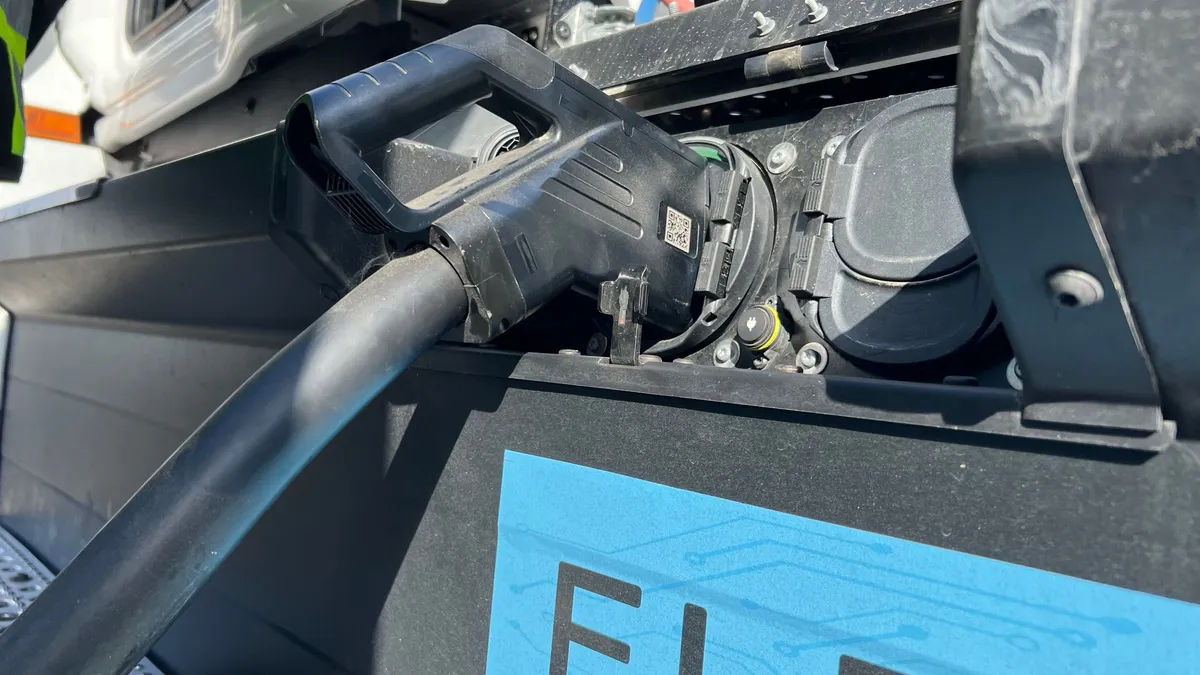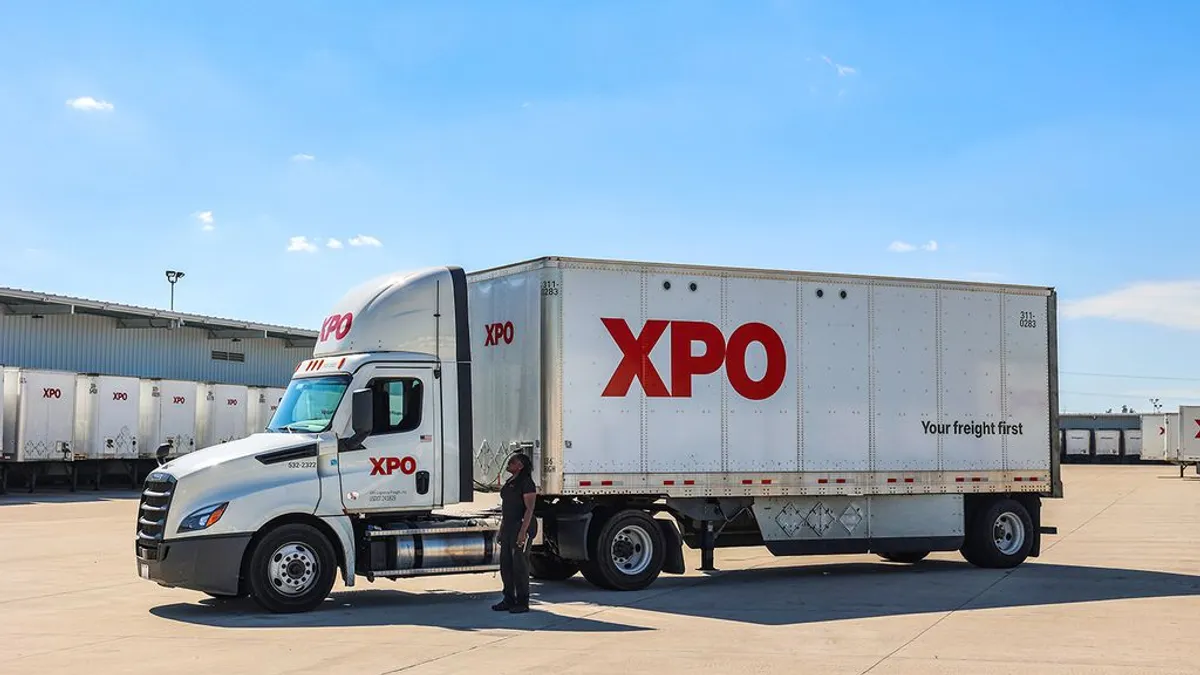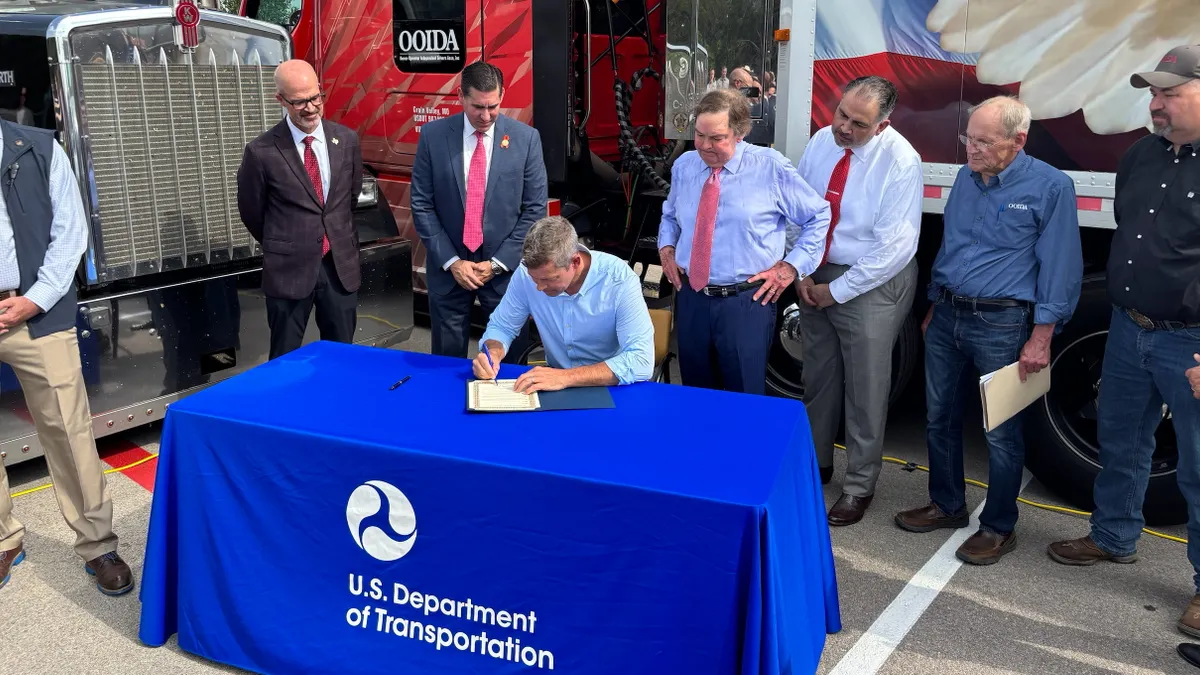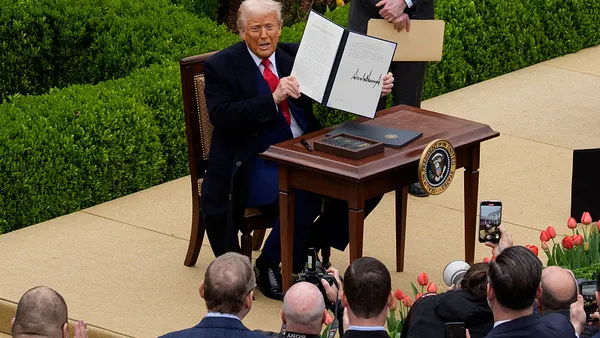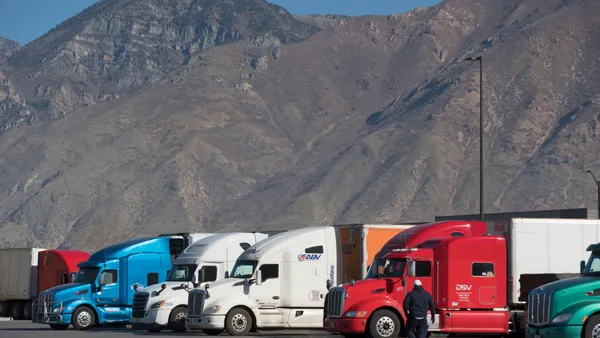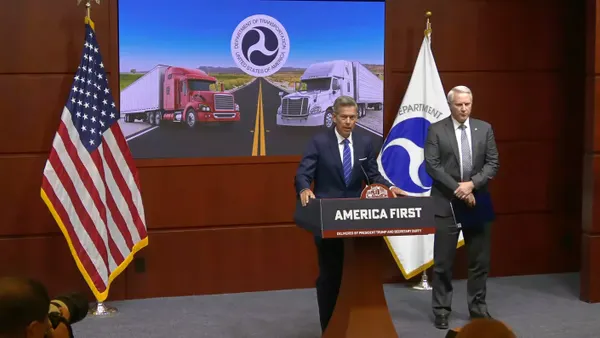The Environmental Protection Agency on Wednesday granted a waiver to California to allow the state’s low-nitrogen oxide (NOx) emissions rule for heavy-duty trucks to proceed, drawing criticism from trucking groups.
The federal Clean Air Act prevents states from setting their own emissions standards unless the EPA administrator grants an exception. The waiver means California can implement tougher rules for heavy-duty engine and vehicle manufacturers on exhaust emissions.
“California has longstanding authority to request waivers from EPA to protect its residents from dangerous air pollution coming from mobile sources like cars and trucks,” Administrator Michael Regan said in the announcement. “Today’s actions follow through on EPA’s commitment to partner with states to reduce emissions and act on the threat of climate change.”
The NOx rule is a more stringent emissions regulation on manufacturers, according to the California Air Resources Board. It will cut heavy-duty NOx emissions by 90%, overhaul engine testing procedures, and further extend engine warranties, CARB says. The regulator anticipates $23 billion worth of public health benefits.
The EPA granted the truck emissions waiver alongside a separate one allowing the state’s Advanced Clean Cars II regulation to move forward. The state rulemaking seeks to require increasing numbers of zero-emission passenger vehicles, starting with model year 2026, and reaching a 100% change in sales by 2035.
But the waivers from the Biden administration will be short-lived, American Trucking Associations President and CEO Chris Spear said in a statement.
Environmental mandates in California have already created significant truck shortages and prices increases, inflating costs for everyday consumer goods, Spear said.
“We look forward to the incoming administration and soon-to-be EPA Administrator Lee Zeldin reversing these misguided policies and restoring common sense to the nation’s environmental policy,” Spear said.
The waiver purposefully injects uncertainty into the trucking industry and makes “no meaningful progress toward purported environmental goals,” Owner-Operator Independent Drivers Association President Todd Spencer said in a statement.
“EPA's credibility outside of radical environmental circles would have been better served by working with regulated industries rather than ramming through last-minute special interest favors,” Spencer said. “We look forward to working with the Trump administration's EPA in good faith towards achievable environmental outcomes.”
Waivers for the state’s Advanced Clean Fleets rule and other regulations are still pending, California Trucking Association SVP of Government Affairs Chris Shimoda noted in a post on LinkedIn.



